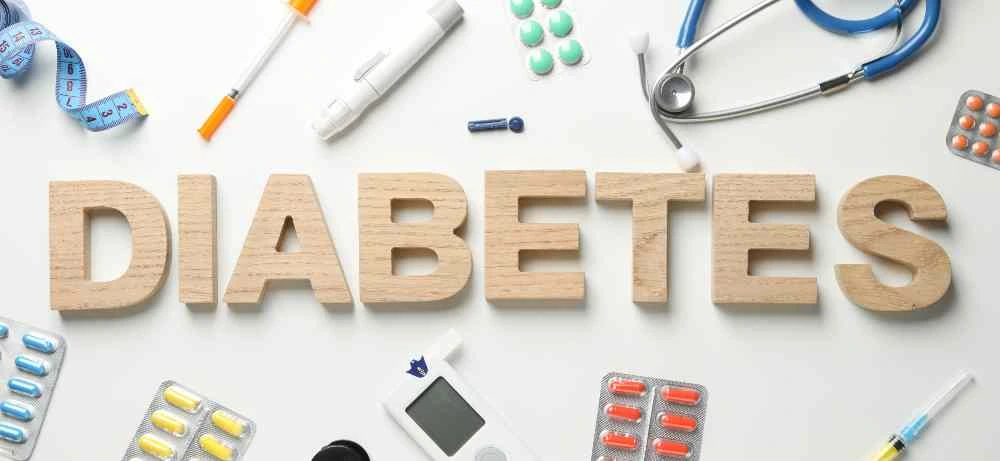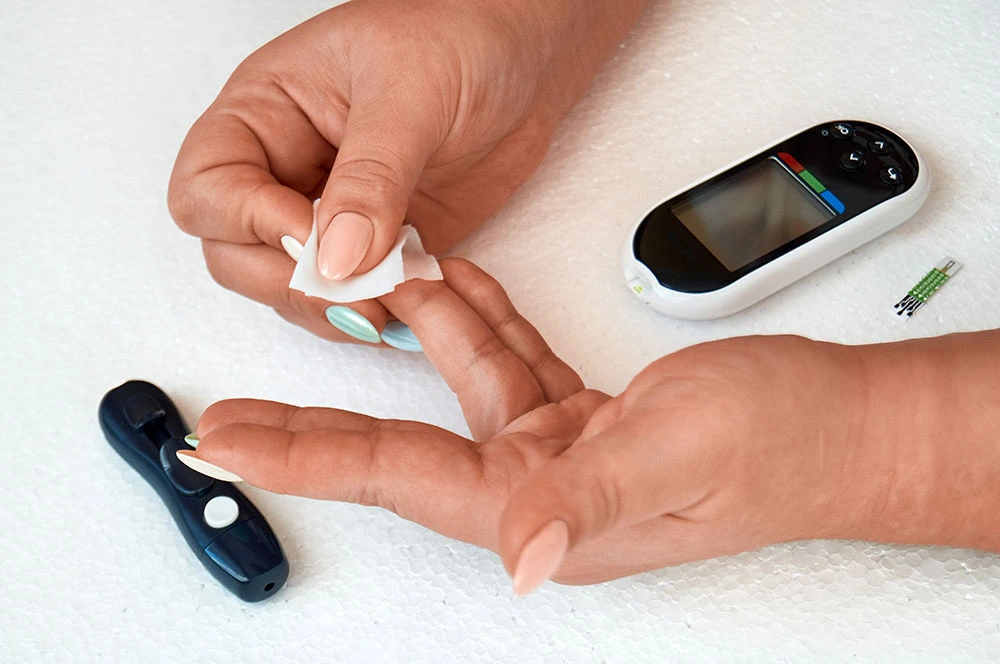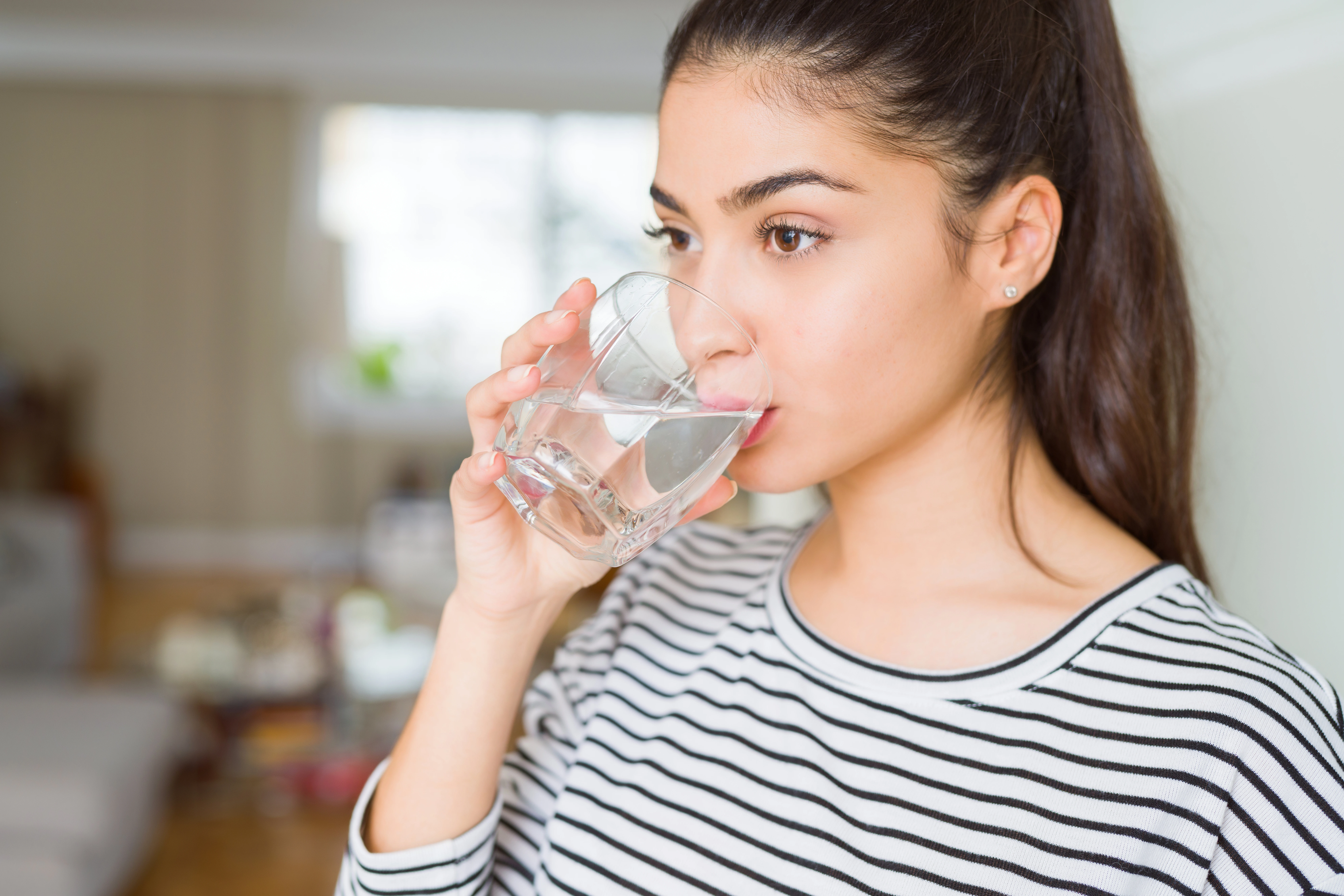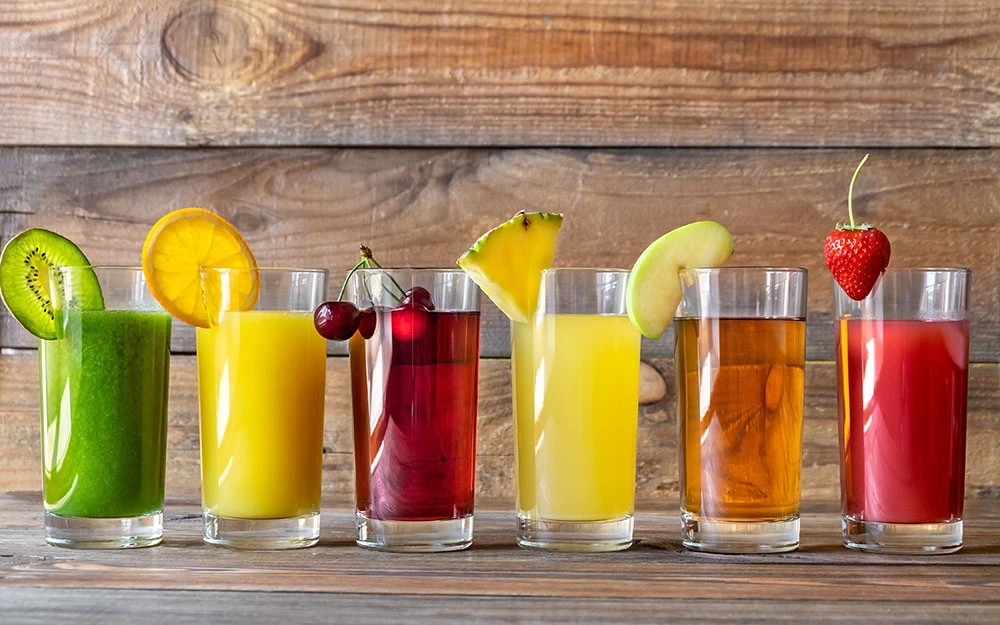Last updated on July 28th, 2023
Staying hydrated is vital for every person, particularly considering that water constitutes above ½ of the human body. 60% of the human body is made of water, 85% in brains, 75% in muscles; it works just like oil to a machine. However, people don’t drink enough. As individuals having diabetes, drinking a sufficient amount of water is chiefly critical. Even slight dehydration during the day (which is simpler than any can guess) might have an effect on the blood glucose. This article explains how dehydration has an impact on blood glucose levels, the amount of water one must drink in a day, who must limit his or her water consumption, and what else one can drink if a person does not wish to have just drink plain water.

The Impact of Water on Diabetes
When a person doesn’t drink an adequate amount of water, the glucose in the person’s bloodstream becomes more concentrated. And this brings about higher levels of blood glucose. Both mild, as well as severe dehydration, might exert a prominent impact on sugar levels.
Even a mild dehydration level, something a person might not even feel could simply leave the glucose levels 50 to 100 mg/dL higher as compared to when a person drinks enough water. If a person is constantly dehydrated day after day, he or she may even be compensating with greater insulin levels as compared to the requirements when the body was getting the water it required.
More serious levels of dehydration, alternatively, might drive blood glucose very high very rapidly. For instance, recurrent vomiting resulting due to food poisoning or a stomach virus may give rise to very abrupt high blood glucose levels. But following intravenous delivery of fluids at the emergency room, the person would likely notice a fall in his or her blood sugar rapidly towards standard levels without extra insulin.
To summarize the simplest problem of serious dehydration results in an intense concentration of glucose in the bloodstream, and then rapidly getting diluted with the help of enough fluids.
Also Read: What is The Normal Sugar Level in Fasting?

Association Between Water and Hyperglycemia
Research studies indicate a direct relationship between the hormone vasopressin, which controls water in the body, as well as diabetes. Regardless of the identified influence of water consumption on vasopressin secretion, no study has examined a possible link between water consumption and the risk of high blood glucose.
People who participated in the study were offered health evaluations every 3 years, such as a self-administered questionnaire in which they were asked how much water, wine, sweet drinks, or beer-cider they can drink per day. Measurements of blood glucose levels were done at the study’s onset as well as 9 years later. The subsequent step could be a study of individuals who say they don’t consume a lot of water, ½ of whom gave their consent to enhance their consumption over a particular period. That would assist in confirming that more water intake helps ward off high blood glucose.
Not having an adequate amount of water could be similar to what researchers can observe in people who take a lot of cholesterol-containing food products. High cholesterol and fat in meals can make individuals more prone to type 2 diabetes. It also adds to the development of other conditions such as atherosclerosis, or hardening of the arteries, most common in individuals with such conditions.
Roughly Each Body Process Depends Upon Water
The roles of water are far more on the bodies than any person can recognize. Water helps in digestion, aids in flushing out wastes, lubricates joints, as well as carries out a host of other significant tasks in a person’s body. Not being appropriately hydrated would considerably lower down a person’s physical capacity as well as brain function.
Sufficient water consumption is important for a range of daily functions within the body:
- helps in digesting meals
- controls the body temperature
- carries oxygen and nutrients to body cells
- protects the organs and tissues from potential damage
- stabilizes the blood pressure
- maintains a stable heartbeat
- maintains the sodium and electrolyte levels of the body
- prevents constipation
- removes bacteria from the bladder
- cushions the joints
Water has been identified in several studies as a vital part of losing weight; however, researchers still aren’t clear how it’s speeding up the weight-loss efforts.
Theories behind water intake and weight loss can be:
- Intake of more water implies the person is more expected to drink less soda and other sugar-laden drinks.
- Drinking of more water can boost the metabolic rate and result in burning more calories.
- Intake of more water helps in reducing cravings for not-so-healthy foods.
- Drinking of more water instead of diet soda may lower insulin resistance.
Apart from this, it is apparent in study after study that people who consume more water have a tendency to lose more weight, on the contrary, to study people drinking less water. Drinking a sufficient amount of water has an effect on various aspects of a person’s daily health. But how much water can be sufficient?
Also Read: Are Blueberries Good for Diabetics?
How Much Water Should Diabetics Drink Each Day?
There is no classic rule for the amount of water a person must drink, but there are rules a person can follow. The most significant proposal is that a person must always have water available and drink whenever a person feels thirsty. A person doesn’t require forcing himself or herself to have water to reach some particular objective but try to have water constantly during the day.
Even if a person doesn’t feel thirsty, he or she must try to take some sips of water every hour in order to stay hydrated. The thirst reflex isn’t always perfect, particularly for diabetics, so it’s better to proactively have a little water as compared to the risk of dehydration.
The average non-diabetic person is recommended to have 8 glasses of water daily, thus a person having diabetes must take that to heart. Though any person’s insulin-producing friends require enough water, as well, the outcomes of mild dehydration in people having diabetes are more noticeable in their blood glucose levels.
8 glasses of water on a daily basis can add up to roughly 2 liters of water (67 ounces or just over ½ a gallon). It appears a lot; however, a person can make it feel more achievable by selecting a medium-sized reusable beverage container as well as determining the number of times per day a person needs to fill it to reach 2 liters.
If a person is exercising or dealing with the heat of summer, that number enhances more rapidly. But even the water requirements of a healthy person would also vary, particularly if a person starts losing water via sweat as he or she is exercising, or if he or she is outside on a sunny day. So, the general rule of thumb for healthy people on a hot day or during exercise is to have 2 to 3 cups per hour to balance the water loss via sweating.
Also Read: Is Quinoa a Good Grain for Diabetics to Eat?
Who Must Limit their Water Consumption?
It’s very much possible to drink excessive water. Various health conditions can tax the body because of excess water and these can be:
- Liver problems
- Heart disorders
- Kidney problems
- Thyroid disorder
- Opiate pain drugs
- Non-steroidal anti-inflammatory drugs (NSAIDs)
- Antidepressants
- Medicines causing water retention
Also Read: Glucophage 500 MG Tablets to Control Your Blood Sugar Level
Good Options to Plain Water
Many sugar-free non-calorie drinks are good options over plain water and these can be:
- Unsweetened tea
- Flavored or infused water
- Diet soda (in restricted amounts)
- Sparkling water
- Coffee in small quantities is also hydrating because the diuretic effect of coffee (making a person urinate more) is less than the quantity of liquid a person has.
Health Risks of Dehydration for Individuals Dealing With Type 2 Diabetes
For individuals experiencing type 2 diabetes, dehydration might be a risky condition. This is due to the fact that it leads to a drop in blood pressure and leads to the body secreting stress hormones, such as norepinephrine and epinephrine, which can increase blood glucose. When a person has high blood glucose, he or she would often need to go to the bathroom more, adding to added dehydration and a vicious cycle.
Also, in a study published in Nutrition Research in 2017, a small sample of males was looked at who consumed an oral glucose tolerance test in several hydration statuses. They observed that for individuals having type 2 diabetes, going only 3 days with subpar water consumption (17 to 34 ounces per day) weakened blood sugar response. The effect of dehydration was expected because of an enhanced level of the stress hormone named cortisol, which elicits the release of sugar. Individuals who took an amount corresponding to the suggestions for water consumption, roughly 101 ounces had an improved blood sugar control. More study related to the effect of chronic dehydration on these metabolic measures is required.
Summary
About 4 or more 8-ounce glasses of water per day help in defending against the development of high levels of glucose in the blood (hyperglycemia). In a research study, people with standard blood sugar levels were recruited at the beginning of the study. People who reported that they had above 34 ounces of water each day were 21% less expected to develop high glucose levels over the next 9 years as compared to people who told they had 16 ounces or less on a daily basis. The evaluation took into account other factors that may have an impact on the risk of high blood glucose, such as age, sex, weight, and physical activity, along with intake of sugary beverages, beer, and wine.
Still, the study fails to prove the effect and the cause. Individuals who have more water could share some unmeasured factor that is responsible for the relationship between water intake and lower risk of high blood sugar. But if verified, this is another good reason to have enough water. Dehydration increases the risk of prediabetes and full-size type 2 diabetes.
Also Read: Glycomet sr 500
FAQs:
Is diabetes insipidus an emergency?
What is the recommended amount of water a diabetic should drink in a day?
Does peeing reduce blood glucose?
Can drinking each day result in diabetes?
Can intake of loads of water help reverse diabetes?
References:
- https://diabetesstrong.com/water-diabetes-drinking-enough-water/
- https://www.everydayhealth.com/type-2-diabetes/symptoms/can-chronic-dehydration-lead-type-2-diabetes/
Last Updated on by Dr. Damanjit Duggal
Disclaimer
This site provides educational content; however, it is not a substitute for professional medical guidance. Readers should consult their healthcare professional for personalised guidance. We work hard to provide accurate and helpful information. Your well-being is important to us, and we value your feedback. To learn more, visit our editorial policy page for details on our content guidelines and the content creation process.

 English
English
















